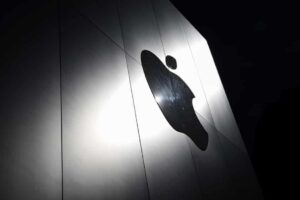
The US government on Thursday filed a sprawling antitrust case against Apple, alleging that the tech giant has illegally prevented competition by restricting access to its software and hardware. The case is a direct challenge to the company’s core products and practices, including its iMessage service and how devices such as the iPhone and Apple Watch connect with one another.
The lawsuit, filed in federal court in New Jersey, alleges that Apple has monopoly power in the smartphone market and uses its control over the iPhone to “engage in a broad, sustained, and illegal course of conduct”. The complaint states that the case is about “freeing smartphone markets” from Apple’s anticompetitive practices, arguing that the company has thwarted innovation to maintain market dominance.
“Apple has maintained its power not because of its superiority, but because of its unlawful exclusionary behavior,” the US attorney general, Merrick Garland, stated in a press conference on Thursday. “Monopolies like Apple’s threaten the free and fair markets upon which our economy is based.”
The US Department of Justice’s suit against Apple is a landmark case targeting the most valuable publicly traded company in the world and follows a raft of antitrust suits aimed at big tech. Amazon, Apple, Meta and Google have all faced investigations from regulators in recent years, both in the United States and Europe, over allegations that they have consolidated power while illegally stifling competition. All boast market capitalizations above a trillion dollars.
Central to the case is whether Apple’s strategy of blocking rival companies from accessing various proprietary features such as its iMessage instant messaging service and Siri virtual assistant constitutes anticompetitive practices. The case will also examine whether Apple making its devices easily integrate with each other, but not with non-Apple products, creates unfair hardware limitations that block competitors from the market.
The Department of Justice’s complaint alleges that Apple has taken several anticompetitive actions, including blocking innovative apps, diminishing the functionality of non-Apple smartwatches, limiting third-party digital wallets and suppressing cross-platform messaging. The complaint argues this has resulted in higher prices for consumers as the company suffocates meaningful competition.
“Apple creates barriers and makes it extremely difficult and expensive for both users and developers to venture outside the Apple ecosystem,” Garland said. The complaint alleges that these practices go back over a decade, and is part of a longstanding playbook at the company to target other technology that threatens its hold over the market.
Apple controls a large portion of the smartphone market, surpassing Samsung last year to become the industry’s top phone maker, and it frequently emphasizes a smooth compatibility between its products. Opposing tech companies, Google chief among them, have characterized Apple’s features as creating a walled garden to the detriment of consumers, and encouraged regulators to investigate those practices. Apple agreed to improve texting between iPhones and Androids in November.
